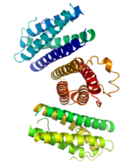Biosimilars
EC approval for pegfilgrastim biosimilar Nyvepria
The European Commission (EC) has granted marketing authorization for the pegfilgrastim biosimilar Nyvepria (PF-06881894), developed by US-based drugmaker Pfizer and its subsidiary Hospira.
Influence of local policy measures and practices on biosimilar/originator market dynamics in Germany
In Europe, the individual Member States are responsible for designing policies that regulate the market entry and use of pharmaceuticals. This decentralized approach has been found to contribute to variations in biosimilar uptake across countries, and even within countries, as was investigated for tumour necrosis factor-alfa (TNF-α) inhibitor biosimilars in Sweden [1, 2]. In Germany, biosimilar market shares are also known to vary at the regional level. This was studied by Blankart et al. for erythropoiesis-stimulating substances, filgrastim and somatropin, and variations in biosimilar market shares were partly attributed to the presence of explicit regional cost-control measures, such as quota regulations [3]. Differences in the uptake of biosimilars have also been described in Germany for the class of TNF-α inhibitors, although reasons behind this variable uptake have not been examined in detail [4].
Positive phase III results for sintilimab plus copy biological Byvasda
Chinese biopharmaceutical firm Innovent Biologics (Innovent) announced on 23 November 2020 positive results for its copy bevacizumab biological Byvasda (IBI-305) in combination with sintilimab.
Regulatory challenges with biosimilars
The World Health Organization (WHO) Expert Committee on Biological Standardization adopted guidelines for biosimilars at its 60th meeting in October 2009 [1]. Since then, according to authors from regulatory bodies across the globe, WHO ‘has provided considerable effort toward helping member states implement the evaluation principles in the guidelines into their regulatory practices’.
China approves adalimumab copy biological HLX03
China-based drugmaker Shanghai Henlius Biotech (Henlius) announced on 7 December 2020 that China’s National Medical Products Administration (NMPA), formerly the China Food and Drug Administration (CFDA), had approved its adalimumab copy biological HLX03.
More national guidance needed on biosimilars in Europe
A poster presented at the Virtual ISPOR (International Society for Pharmacoeconomics and Outcomes Research) 2020 conference outlines the importance of regulatory guidance on biosimilar medicines in Europe.
EMA and FDA accept application for adalimumab biosimilar AVT02
Iceland-based biopharmaceutical company Alvotech announced on 19 November 2020 that its US subsidiary, Alvotech USA, had filed an application for its adalimumab biosimilar (AVT02). The company also announced that the European Medicines Agency (EMA) had accepted for review its application for AVT02 with an EMA decision anticipated in the fourth quarter of 2021.
Phase I study comparing SB8 with reference bevacizumab
SB8, developed by Samsung Bioepis, was approved as a biosimilar of the reference product Avastin (bevacizumab) by the European Commission in August 2020 with the brand name of Aybintio [1]. The objective of this phase I study was to compare the pharmacokinetics, safety, tolerability and immunogenicity between SB8 and the European Union (EU) and United States (US) reference products (bevacizumab-EU and bevacizumab-US).
Biosimilars in Australia – a-flagging and sustainability
Australia first introduced guidelines for biosimilars back in August 2008 when it adopted a number of guidelines from the EU on similar biological medicinal products [1].
EMA recommends approval of bevacizumab biosimilar Onbevzi
The European Medicines Agency’s (EMA) Committee for Medicinal Products for Human Use (CHMP) announced on 13 November 2020 that it had recommended granting marketing authorization for the bevacizumab biosimilar Onbevzi.













